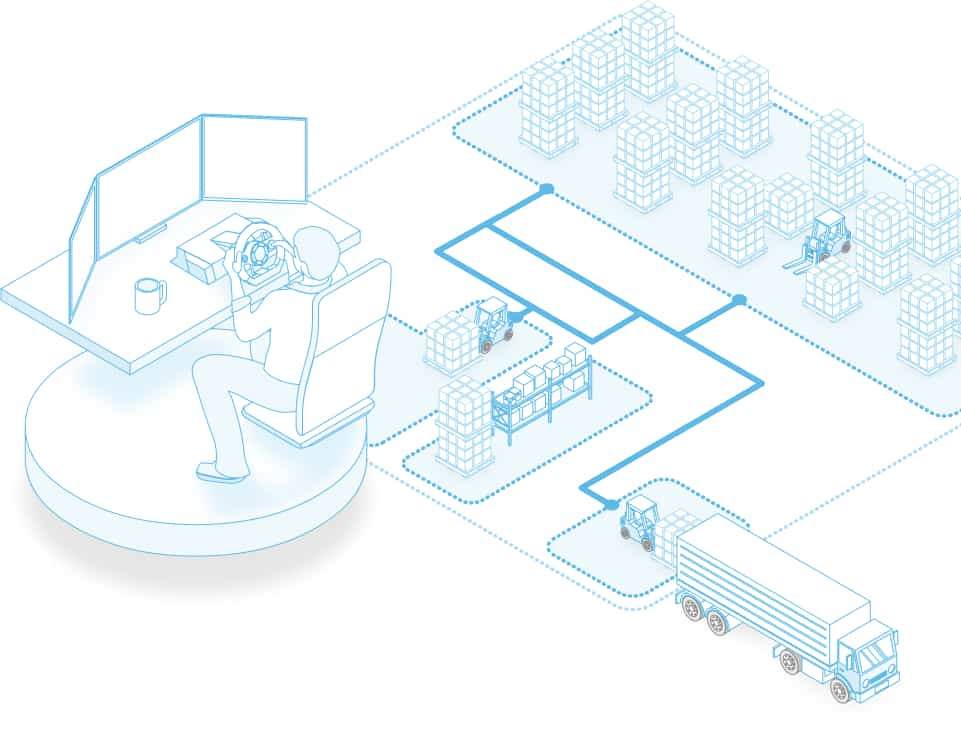Warfighting Lessons for Life
Tippets by Taps #168: Robots, Writing, Reading, Trauma, and more. Enjoy!
A warm welcome to you new readers who are getting this for the first time. Thank you for letting me be a small part of your week. As a reminder, Tippets is where I share my thoughts on topics I find interesting, usually centered around technology and psychology, as well as an assortment of tidbits and snippets (aka. tippets!) from to mix it up!
Forwarded this email? Subscribe below. Enjoyed this email? Forward it to a friend.
How is it already February? Although, judging by how long ago the New Year break feels (longest five weeks ever?), it simultaneously feels like it should be Memorial Day that’s around the corner, not President’s Day!
I recently read Warfighting by the US Marine Corp on the recommendation of a friend. Running a brief 84 pages, it is insightful and packed full of wisdom, entirely devoid of fluff, and very much to the point (as one would expect from the military). It was first written in 1989 as a manual to outline "the way Marines think about warfare."
It was striking how much of the book and its truths apply to warfare, but more broadly to business, investing, and life. If you remove the combat-related terms and apply the approach to say, building a startup, the insight holds true. For example:
Speed is rapidity of action. It applies to both time and space. Speed over time is tempo-the consistent ability to operate quickly. Speed over distance, or space, is the ability to move rapidly. Both forms are genuine sources of combat power. In other words, speed is a weapon. In war, it is relative speed that matters rather than absolute speed.
We want to attack the source of enemy strength, but we do not want to attack directly into that strength. We obviously stand a better chance of success by concentrating our strength against some relative enemy weakness. So we also ask ourselves: Where is the enemy vulnerable?
Replacing 'war' with 'startups', and 'enemy' with 'incumbent' yields:
Speed is rapidity of action. It applies to both time and space. Speed over time is tempo-the consistent ability to operate quickly. Speed over distance, or space, is the ability to move rapidly. Both forms are genuine sources of combat power. In other words, speed is a weapon. In startups, it is relative speed that matters rather than absolute speed.
We want to attack the source of the incumbent's strength, but we do not want to attack directly into that strength. We obviously stand a better chance of success by concentrating our strength against some relative incumbent weakness. So we also ask ourselves: Where is the incumbent vulnerable?
I imagine that advice (or similar) has been given in countless board meetings. What's interesting is it comes across as a truism. But, coming from the military, where execution is everything, it is clear that simple does not mean easy.
Since war is a fluid phenomenon, its conduct requires flexibility of thought. Success depends in large part on the ability to adapt-to proactively shape changing events to our advantage as well as to react quickly to constantly changing conditions.
This statement is straightforward and logical. But if it was easy to implement within an organization, disruption from an upstart wouldn't be a thing and Clayton Christensen's The Innovator's Dilemma wouldn't be a best seller.
A short read worth sitting with and pondering.
For a full set of my highlights, check out my Taps’ Notes on the book here.
I hope you have a great week ahead!
Tippets from Around the Web:
Now Physical Jobs are Going Remote Too
Our remote-first future is not going to be limited to desk jobs. A massive labor shortage and the ongoing pandemic has created major challenges for the warehousing and logistics industry. This is creating opportunities for new, technology driven solutions to penetrate the market. While robots on the manufacturing line are nothing new, we’re now seen the advent of user-controlled and self-driving heavy machinery such as forklifts being used in facilities. One such company is Phantom Auto, who has built AI-supported, remote operated vehicles including pallet jacks, counterbalances, trucks and robots. Similar to remote-piloted aircraft in the military, drivers sit “behind a steering wheel and pedals that [transmit] commands to the forklift thousands of miles away; large screens offered views in front, behind, and to the sides of the vehicle.” We’re a long way from people-free warehouses and manufacturing lines but this is definitely a trend worth paying attention to. Oh, and for all of you parents with kids that are deep into gaming, it is probably worth letting them play instead of forcing them outside considering that setup is what a lot of jobs are going to look like in a decade!
Remote work and the importance of writing
I have found writing well to be frustratingly difficult. One of the main reasons I write this newsletter is to improve upon my writing. Good writing is incredibly powerful. And, as this article in the Economist points out, becoming an increasingly important skill in a remote-first, asynchronous work environment.
When new employees start work on something, they want the back story. When veterans depart an organisation, they should leave knowledge behind. Writing everything down sounds like an almighty pain. But so is turning up to a meeting and not having the foggiest what was decided last time out.
Writing is not always the best way to communicate in the workplace. Video is more memorable; a phone call is quicker; even PowerPoint has its place. But for the structured thought it demands, and the ease with which it can be shared and edited, the written word is made for remote work.
Reading and Rabbit Holes
A great quick read from Tyler Cowan on research and curiosity. It reminded of how Patrick Collison at Stripe approaches reading. Read in clusters and start with the questions.
In fact, I don’t know a single particular “must read” book on Venice that stands out above all others, nor do I know a book that necessarily will draw you in to the study of Venice if you are not already interested. I instead suggest a “rabbit holes” strategy, a term coined in this context by Devon Zuegel. Come up with a bunch of questions about Venice you want answered, and then simply do whatever you must to pursue them.
Follow the questions, not the books per se. Don’t focus on which books to read, focus on which questions to ask. Then the books, and other sources, will follow almost automatically.
Read in clusters! Don’t obsess over titles. Obsess over questions. That is how to learn best about many historical areas, especially when there is not a dominant book or two which beat out all the others.
My Young Mind Was Disturbed by a Book. It Changed My Life.
Speaking of reading, there is a battle currently raging in the US on what books can and cannot be taught in school. This great piece on the importance of books by Viet Thanh Ngyuen, author of The Sympathizer (one of the best books I read in 2020), deftly articulates why banning content of any kind is antithetical to the idea of open society founded on merit and ideas. My favorite passages below, but the entire piece is worth a read.
But those who seek to ban books are wrong no matter how dangerous books can be. Books are inseparable from ideas, and this is really what is at stake: the struggle over what a child, a reader and a society are allowed to think, to know and to question. A book can open doors and show the possibility of new experiences, even new identities and futures.
Here’s the thing: If we oppose banning some books, we should oppose banning any book. If our society isn’t strong enough to withstand the weight of difficult or challenging — and even hateful or problematic — ideas, then something must be fixed in our society. Banning books is a shortcut that sends us to the wrong destination.
Those who ban books seem to want to circumscribe empathy, reserving it for a limited circle closer to the kind of people they perceive themselves to be. Against this narrowing of empathy, I believe in the possibility and necessity of expanding empathy…If it’s possible to hate and fear those we have never met, then it’s possible to love those we have never met. Both options, hate and love, have political consequences, which is why some seek to expand our access to books and others to limit them.
The Case Against the Trauma Plot
The ‘trauma plot’ is a storytelling mechanism that directs the viewer/reader/listener’s attention not to the future, but to the past. What happened to this character that made them who they are? Why are they the way they are? The trauma plot is everywhere these days, from Ted Lasso (season two with his Dad much?) to James Bond. According to Parul Seghal, staff writer for the New Yorker, it shouldn’t be.
The prevalence of the trauma plot cannot come as a surprise at a time when the notion of trauma has proved all-engulfing. Its customary clinical incarnation, P.T.S.D., is the fourth most commonly diagnosed psychiatric disorder in America, and one with a vast remit.
[Trauma] often yields a story that can be easily diagrammed, a self that can be easily diagnosed. But in deft hands the trauma plot is taken only as a beginning—with a middle and an end to be sought elsewhere. With a wider aperture, we move out of the therapeutic register and into a generational, social, and political one. It becomes a portal into history and into a common language
The trauma plot flattens, distorts, reduces character to symptom, and, in turn, instructs and insists upon its moral authority. The solace of its simplicity comes at no little cost. It disregards what we know and asks that we forget it, too—forget about the pleasures of not knowing, about the unscripted dimensions of suffering, about the odd angularities of personality…
A fun tweet to end
Quote I’m thinking about: "When working with people, assume good intentions. When listening to people, interpret their words in a generous way. You will occasionally get burned and mistreated by always assuming the best in others, but it is a far better way to live than the opposite." - James Clear
Please share what you’re reading! If you have insight on anything mentioned above or have any interesting links/papers/books that you think would be worth sharing in future issues of Tippets, please reach out! Click here, reply to this email, or DM me on Twitter at @taps.
How did you like this week’s Tippets? Your feedback helps me make this better every issue.




